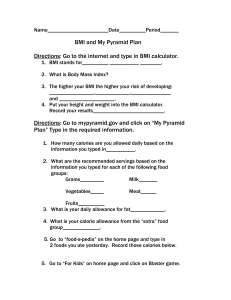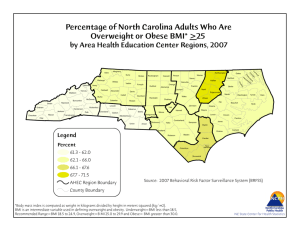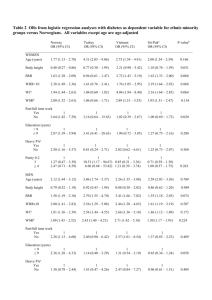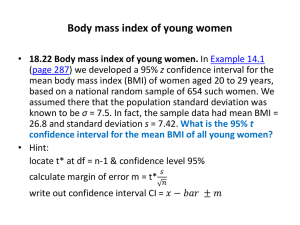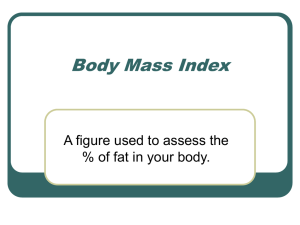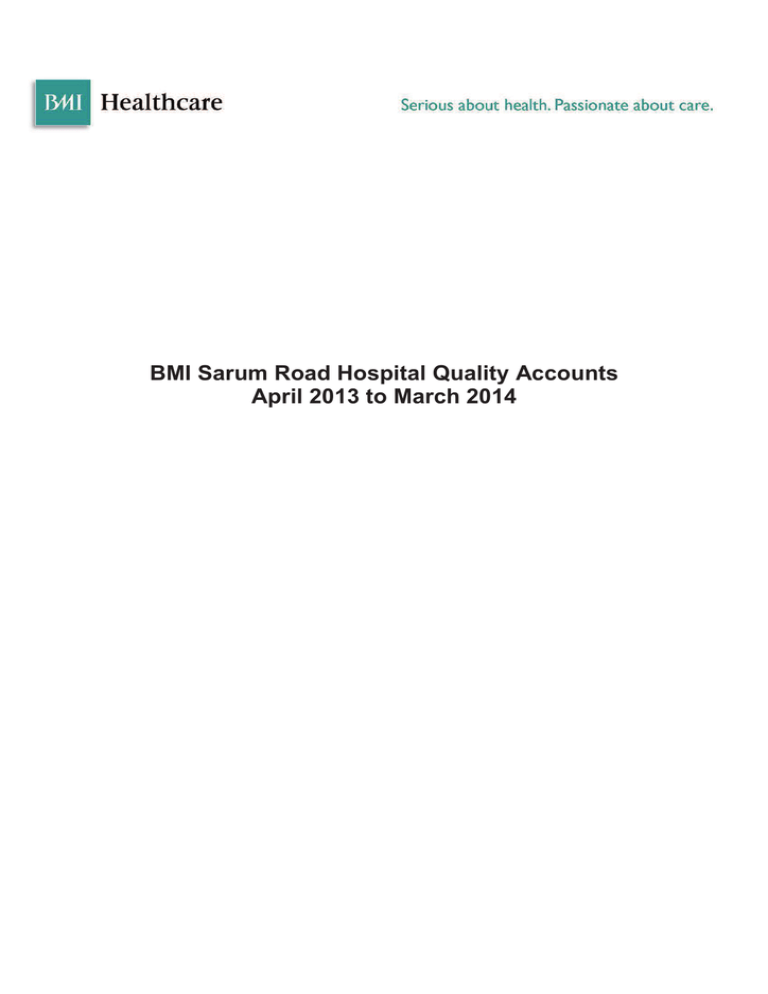
BMI Sarum Road Hospital Quality Accounts
April 2013 to March 2014
Chief Executive’s Statement
Welcome to our Quality Accounts 2014, the fifth year we have
published this data. The information presented here on a broad range
of quality measures continues to grow in importance and usefulness for
patients and commissioners. Quality accounts already provide a key
metric for people to assess the strength of our 66 hospitals and clinics
against other facilities - NHS and independent - from which they might
receive their care.
For BMI Healthcare and every other private provider the importance of
comparable quality data was recently reinforced by the conclusions of
the Competition Commission’s market investigation into private
healthcare. From the outset of the inquiry BMI Healthcare supported the
principle that competition in the sector would be enhanced if private
hospitals produced comparable quality data, and that competition
amongst hospitals would drive up service standards. We were therefore
fully supportive when the Commission announced in April that it is mandating the provision of
greater information on the performance of hospital operators and consultants. We
wholeheartedly agree when the Commission says that “a more transparent market with patients
actively making choices will drive hospital operators to compete on the things that matter to
patients”.
Whilst we are yet to see how the Commission will ensure that this is enacted, the private sector
continues to take its own steps. Five years ago BMI Healthcare was at the forefront of the
sector’s efforts to be more open about sharing comparable quality and pricing data when we
sponsored the launch of the Hellenic Project. Today that work has been superseded by the
Private Hospitals Information Network which is working towards publishing data that will allow
patients and commissioners to make informed choices - a challenge that the sector must now
rise to. We at BMI Healthcare will continue to play our part in these important developments,
which we believe can have a significant role in driving higher quality standards.
I remain proud, but certainly not complacent, about the quality of care our hospitals provide.
Last year BMI Healthcare invested £40m in our hospitals, supporting our committed staff and
consultants to meet the challenge of providing consistently safe, high quality care. We
constantly measure our patients’ experience, and I am pleased to note that in the three months
to the end of March 2014, 97.3% of patients independently surveyed expressed satisfaction with
their care and 97.9% said they would recommend us to others. There is however always room
for improvement, and publication of comparable quality data across the independent sector can
only help.
The information available in these quality accounts has been reviewed by the Clinical
Governance Board and I declare that as far as I am aware the information contained in these
reports is accurate. I thank all the staff whose energy and devotion to improvement is
represented here and, more importantly, in the experiences of every patient who steps across
our threshold.
Stephen Collier
Chief Executive Officer
BMI Sarum Road Hospital has 48 beds with all rooms offering the privacy and comfort of ensuite facilities, satellite TV, telephone and Wi-Fi.
The hospital has two theatres, a day care unit and a high dependency unit. These facilities
combined with the latest in technology and on-site support services, enable our consultants to
undertake a wide range of procedures from routine investigations to complex surgery. This
specialist expertise is supported by caring and professional medical staff, with dedicated nursing
teams and Resident Medical Officers on duty 24 hours a day, providing care within a friendly
and comfortable environment.
An ongoing programme of redecoration in patient rooms, consulting rooms and public spaces
was commenced throughout the hospital during the year.
33% of NHS patients are treated as part of the overall caseload, insured and self pay patients
making up the rest, and support is given to the Aortic Aneurysm Screening Programme through
provision of a room to hold a clinic.
BMI Healthcare is registered as a provider with the Care Quality Commission (CQC) under the
Health & Social Care Act 2008. BMI Sarum Road Hospital is registered as a location for the
following regulated services:•
•
•
•
Treatment of disease, disorder and injury
Surgical procedures
Diagnostic and screening
Family Planning
The CQC carried out an unannounced inspection on 09/12/13 and the hospital was found fully
compliant in the following standards:
Standards of treating people with respect and involving them in their care
Standards of providing care, treatment & support which meets people's needs
Standards of caring for people safely & protecting them from harm
Standards of staffing
Standards of management
BMI Sarum Road Hospital has a local framework through which clinical effectiveness, clinical
incidents and clinical quality is monitored and analysed. Where appropriate, action is taken to
continuously improve the quality of care. This is through the work of a multidisciplinary group
and the Medical Advisory Committee.
Regional Clinical Quality Assurance Groups monitor and analyse trends and ensure that the
quality improvements are operationalised. There has been recent development of initiatives
such as ERP and Endoscopy.
At corporate level the Clinical Governance Board has an overview and provides the strategic
leadership for corporate learning and quality improvement.
There has been ongoing focus on robust reporting of all incidents, near misses and outcomes.
Data quality has been improved by ongoing training and database improvements. New reporting
modules have increased the speed at which reports are available and the range of fields for
analysis. This ensures the availability of information for effective clinical governance with
implementation of appropriate actions to prevent recurrences in order to improve quality and
safety for patients, visitors and staff.
At present we provide full, standardised information to the NHS, including coding of procedures,
diagnoses and co-morbidities and PROMs for NHS patients.There are additional external
reporting requirements for CQC, Public Health England (Previously HPA) CCGs and Insurers
BMI is a founding member of the Private Healthcare Information Network (PHIN) UK – where
we produce a data set of all patient episodes approaching HES-equivalency and submit this to
PHIN for publication. The data is made available to common standards for inclusion in
comparative metrics, and is published on the PHIN website http://www.phin.org.uk. This website
gives patients information to help them choose or find out more about an independent hospital
including the ability to search by location and procedure.
1.
Safety
1.1
Infection prevention and control
The focus on infection prevention and control continues under
the leadership of the Group Head of Infection Prevention and
Control, in liaison with the link nurse at BMI Sarum Road
Hospital.
The focus on infection prevention and control continues under
the leadership of the Group Director of Infection Prevention and
Control and Group Head of Infection Prevention and Control, in
liaison with the Infection Prevention and Control Lead at BMI
Sarum Road Hospital.
We have had:
•
•
•
•
Zero cases of MRSA bacteraemia in the last year
Zero MSSA bacteraemia cases in the last year
Zero E.coli bacteraemia cases in the last year
Zero cases of hospital apportioned Clostridium difficile in the last year
SSI data is also collected and submitted to Public Health England for orthopaedic surgical
procedures.
Our rates of infection are:
• 0% for Hips across all grades of risk
• 0% for Knees across all grades of risk
The following shows audit results of High Impact Intervention Care bundles implemented in BMI
Sarum Road Hospital:
ND= No audit data submitted/returned.
Mulberry Ward
Central Line - Insertion Care
Central Line- Ongoing Care
Peripheral Cannula- Insertion Care
Peripheral Cannula- Ongoing care
Oct2013
100%
ND
ND
100%
Dec Jan2014
Mar Apr2014
Jun
See Comments.
100%
100%
ND
Comments: No central lines inserted in the unit during Quarter 2.
Chestnut Ward
Urinary Catheter- Ongoing care
Peripheral Cannula- Ongoing care
Post-operative Surgical Care
Oct2013
ND
ND
Dec Jan2014
0%
70%
See Comments.
See Comments.
Comments: Post-op surgical care was allocated to Theatres to do during Quarters 1 & 2.
Mar Apr2014
Jun
Comments: *Chestnut ward: Urinary catheter ongoing care is 0% due to incorrect positioning of drainage bags.
Action required: Ensure availability of drainage stands to support drainage bags.
Comment: Action completed. Bard drainage stands and hangers available in storage cupboard across HDU in Chestnut
ward. All staff informed.
** Chestnut ward: Peripheral ongoing care is 70% due to incomplete documentation of removals of cannula.
Action required: Raise awareness for all staff responsible for removing cannula to document removal on Cannula Care
Plan.
Comment: Result feedback to Chestnut HoD/ IPC Link practitioner copied in to remind all staff re: documentation of
cannula removal.
*Chestnut ward: Urinary catheter ongoing care is 0% due to incorrect positioning of drainage bags.
Action required: Ensure availability of drainage stands to support drainage bags.
Comment: Action completed. Bard drainage stands and hangers available in storage cupboard across HDU in Chestnut
ward. All staff informed.
Theatres/ Recovery
Central Line - Insertion Care
Peripheral Cannula- Insertion Care
Urinary catheter- Insertion
Pre-operative Surgical Care
Intra-operative Surgical Care
Oct2013
ND
ND
ND
ND
ND
Dec Jan2014
ND
0%
100%
100%
100%
Mar Apr2014
Jun
Comments: No hand hygiene observed prior to donning gloves/prior to insertion of peripheral cannula. Action: Feedback
audit results to all departments: All staff to remind each other to do hand hygiene prior to donning gloves prior to
cannulation/ aseptic technique.
The departmental results for Hand Hygiene audits are as follows:
Hand Hygiene and BBE Compliance 2013-2014
Quarter 1Quarter
22013/14
2013/14
Departments
Hand Hygiene
Hand Hygiene
OPD
92%
ND
Radiotherapy ND
ND
Physiotherapy ND
ND
Endoscopy
ND
ND
Mulberry
ND
ND
Chestnut
ND
ND
Theatres
ND
ND
ND= No audit data submitted/ returned.
Apr-14
HH
100%
ND
ND
100%
80%
ND
ND
BBE
70%
ND
ND
100%
80%
ND
ND
The HIPC is undertaking a programme of training and competency assessment on hand
hygiene and aseptic non touch technique to supplement the mandatory e-learning Infection
Prevention and Control module.
Environmental cleanliness is also an important factor in infection prevention and our patients
rate the cleanliness of our facilities highly.
Patient satisfaction – Cleanliness
Room cleanliness
Excellent 66.8%
Very good 27.7%
1.2
Bathroom cleanliness
Excellent 68.7%
Very good 27.5%
Patient Led Assessment of the Care Environment (PLACE)
We believe a patient should be cared for with compassion and dignity in a clean, safe
environment. Where standards fall short, they should be able to draw it to the attention of
managers and hold the service to account. PLACE assessments will provide motivation for
improvement by providing a clear message, directly from patients, about how the environment
or services might be enhanced.
In 2013 we introduced PLACE, which is the new system for assessing the quality of the patient
environment, replacing the old Patient Environment Action Team (PEAT) inspections.
The assessments involve patients and staff who assess the hospital and how the environment
supports patient’s privacy and dignity, food, cleanliness and general building maintenance. It
focuses entirely on the care environment and does not cover clinical care provision or how well
staff are doing their job.
The results will show how hospitals are performing nationally and locally. 2013 results are
shown below:
Cleanliness
75.73%
Food and Hydration
87.80%
Privacy and Dignity
85.59%
Condition, Appearance and Maintenance
73.00%
A comprehensive action plan is in place for each area reviewed and has been RAG rated
according to infection control risk or how strongly the patient assessors felt about a particular
issue. Dust in high areas was a particular issue in the Outpatient Department. Progress against
the action plan is regularly reviewed.
1.3
Venous Thrombo-embolism (VTE)
BMI Healthcare, holds VTE Exemplar Centre status by the Department of Health across its
whole network of hospitals including, BMI Sarum Road Hospital. BMI Healthcare was awarded
the Best VTE Education Initiative Award category by Lifeblood in February 2013 and were the
Runners up in the Best VTE Patient Information category.
We see this as an important initiative to further assure patient safety and care. We audit our
compliance with our requirement to VTE risk assessment every patient who is admitted to our
facility and the results of our audit on this has shown 100%. The audits include monthly
healthcare record audits, quarterly VTE audits, NHS Safety Thermometer data and CQUIN data
BMI Sarum Road Hospital reports the incidence of Venous Thromboembolism (VTE) through
the corporate clinical incident system. It is acknowledged that the challenge is receiving
information for patients who may return to their GPs or other hospitals for diagnosis and/or
treatment of VTE post discharge from the Hospital. As such we may not be made aware of
them. We continue to work with our Consultants and referrers in order to ensure that we have
as much data as possible.
BMI Sarum Road Hospital has reported 2 DVTs (0.05 per 100 admissions) and no PEs in the
last year. In each case a Root Cause Analysis has been undertaken.
2.
Effectiveness
2.1
Patient reported Outcomes (PROMS)
Patient Reported Outcome Measures (PROMs) are a means of collecting information on the
effectiveness of care delivered to NHS patients as perceived by the patients themselves.
PROMs is a Department of Health led programme.
For the current reporting period, the tables below demonstrate that the health gain between
Questionnaire 1 (pre-operative) and Questionnaire 2 (post–operative) for patients undergoing
hip replacement and knee replacement at BMI Sarum Road Hospital.
To improve the Health Gain for patients, a Physiotherapy In-patient lead post has been created
by BMI Healthcare.
Oxford Hip Score average
April 12 –
Mar 13
BMI Sarum
Road
Hospital
Q1
Q2
Health gain (Q2 - Q1 average)
23
40.4
17.4
17.907
39.224
21.317
England
Copyright © 2011 Re-used with the permission of The Health and Social Care Information Centre. All rights reserved.'
Oxford Knee Score average
April 12 –
Mar 13
BMI Sarum
Road
Hospital
Q1
Q2
Health gain (Q2 - Q1 average)
*
*
*
18.893
34.902
16.01
England
Copyright © 2013, The Health and Social Care Information Centre. All Rights Reserved.
2.2
Enhanced Recovery Programme (ERP)
The ERP is about improving patient outcomes and speeding up a patient’s recovery after
surgery. ERP focuses on making sure patients are active participants in their own recovery and
always receive evidence based care at the right time. It is often referred to as rapid recovery, is
a new, evidence-based model of care that creates fitter patients who recover faster from major
surgery. It is the modern way for treating patients where day surgery is not appropriate.
ERP is based on the following principles:
1. All Patients are on a pathway of care
a. Following best practice models of evidenced based care
b. Reduced length of stay
2. Patient Preparation
a. Pre Admission assessment undertaken
b. Group Education sessions
c. Optimizing the patient prior to admission – i.e HB optimisation, control comorbidities, medication assessment – stopping medication plan.
d. Commencement of discharge planning
3. Proactive patient management
a. Maintaining good pre-operative hydration
b. Minimising the risk of post-operative nausea and vomiting
c. Maintaining normothermia pre and post operatively
d. Early mobilisation
4. Encouraging patients have an active role in their recovery
a. Participate in the decision making process prior to surgery
b. Education of patient and family
c. Setting own goals daily
d. Participate in their discharge planning
Consultants with Practicing Privileges at BMI Sarum Road Hospital work at local NHS Hospitals
who were involved in the early ERP work so are familiar will the strategy. A local workshop is to
take place for hospital staff in order to increase ERP awareness, and will be delivered by the
corporate ERP lead. Regular ERP meetings are held according to the agreed Terms of
Reference.
Future plans include: GP awareness of ERP being disseminating by the Primary Care Manager,
Physiotherapy led discharge review, provision of Ambulatory Chairs to be reviewed, constraints
on operating sessions affecting discharge to be reviewed.
Average LOS across all admissions at BMI Sarum Road Hospital is 2.3 days (BMI = 2.34 days).
2.3
Unplanned Readmissions within 28 days and unplanned returns to theatre.
Unplanned readmissions and unplanned returns to theatre are normally due to a clinical
complication related to the original surgery.
BMI Sarum Road Hospital has reported 6 (0.16 per 100 discharges) unplanned readmissions
within 28 days and 9 unplanned returns to theatre (0.27 per 100 theatre cases) in the last year.
These are discussed at Clinical Governance meetings held every two months and Medical
Advisory Committee meetings held quarterly. Trends, if there are any to identify, are
investigated and acted upon.
3.
Patient experience
3.1 Patient satisfaction
BMI Healthcare is committed to providing the highest levels of quality of care to all of our
patients. We continually monitor how we are performing by asking patients to complete a patient
satisfaction questionnaire. Patient satisfaction surveys are administered by an independent third
party.
Annual responses
Average of Responsiveness
Average Impression of Admission
Average Impression of Consultant
Average Impression of Nursing
Average Impression of Accommodation
Average Impression of Catering
Average Impression of Discharge
Average Impression of Quality of Care
Average of How likely to Recommend to Friends and Family
2012
1250
N/K
99.7 %
100 %
99.0 %
98.7 %
97.7 %
98.2 %
99.5 5
N/A
2013
1876
93.1 %
93.1 %
99.5 %
96.2 %
94.2 %
89.8 %
89.7 %
98.4 %
83.8 %
The three main areas of focus for improvement are the admission process, catering and the
discharge process. The main actions are:
• to improve the greeting/reception received on arrival through staff training
• to improve the quality/presentation of the food
• to improve information regarding discharge
3.2 Complaints
In addition to providing all patients with an opportunity to complete a satisfaction survey BMI
Sarum Road Hospital actively encourages feedback both informally and formally. Patients are
supported through a robust complaints procedure, operated over three stages:
Stage 1: Hospital resolution
Stage 2: Corporate resolution
Stage 3: Patients can refer their complaint to independent adjudication if they are not satisfied
with the outcome at the other 2 stages.
BMI Sarum Road Hospital has received and responded to 26 written complaints (0.68 per 100
admissions) satisfactorily at Stage 1 in the last year. No complaints have progressed to Stage 2
or Stage 3. All verbal feedback received is responded.
The main theme of complaints seems to be lack of information about outpatient charges, by
both insured and self-pay patients, and the actual cost of some procedures, by insured patients.
At a local level, prior to outpatient blood samples being taken, staff are alerting patients that a
charge will be levied and offer the opportunity to have the blood sample taken through their GP.
Work is being undertaken at a corporate level to standardise charges and have them on display.
4.
CQUINS
CQUIN Outcome data is collected and reported on the following:
•
MRSA screening and treatment prior to surgery (100%)
•
Smoking status recorded and smoking cessation offered
•
Healthy weight status calculated and recorded
•
Lifestyle information given
•
Alcohol advice provided to high risk patients and referred to GP/ referral refused
•
VTE assessment and prophylaxis anticoagulant given (100%)
•
Proms commenced/ completed
•
Falls assessment
•
Prophylaxis antibiotics (for Hip and Knee Replacements only)
•
MEWS Modified Early Warning Score (NEWS has been introduced – National Early
Warning Score).
The NHS Safety Thermometer is also completed on one day each month on a monthly basis
capturing patient age, sex, old or new Pressure Ulcers, Falls, UTI’s or Catheters, VTE
assessment/ prophylaxis and VTE treatment.
5.
National Clinical Audits
BMI Sarum Road Hospital was only eligible to participate in National Joint Registry audit and all
joint replacements are submitted to this. BMI hospital data is from page 223 onwards in
attached latest NJR report.
The number of procedures undertaken has increased through fewer consultants. The consent
rate for NJR submission is down to 84% from 97%. It is difficult to establish the reason for this
as pre-assessment staff complete the form with patients during pre-assessment. Theatre staff
will continue to be encouraged to ensure patients NHS numbers are included on records on the
NJR records to further improve the linkability (increased from 89% to 94%).
6.
Research
No NHS patients were recruited to take part in research.
7.
Priorities for service development and improvement
The following projects identified are part of a three year plan. Some will be managed locally and
others are to be agreed as part of the wider BMI strategic development plans:
Establish new endoscopy unit to meet required standards supporting the following:
•
•
•
Walk in/walk out endoscopy outpatient
Diagnostic endoscopies
Therapeutic endoscopies
To include:
• Working area, decontamination area, storage area
• Patient reception area, patient rest area, patient discharge area
• Consultant area, staff area
Enhance Oncology Patient Care Provision
•
•
•
•
To provide triage and overnight facility for oncology patients to support any drug therapy
regime, infectious status and maintain overall support to patient
To include investment in staffing/ training and medical support
Working towards the Macmillan Quality Environment Mark in Oncology
Review of current practices to support improvement as required to meet required quality
standards
Imaging
• Establish purpose built facilities for a static MRI scanner
• Update digital screening rooms, ultrasound and mammography with associate reception
and waiting areas and staff areas
Patient bedroom refurbishment
• Planned programme to review all patient bedrooms to refurbish as appropriate including
bathrooms/wet shower areas
• Installation of piped oxygen/ suction in all patient bedrooms
• Update patient call system
Refurbishment of car parking area
• Repair of weather/wear and tear damage to road surface and extend car park to support
increased car parking requirements
8.
Mandatory Quality Indicators
8.1
The value and banding of the summary hospital-level mortality indicator (SHMI)
for the BMI Sarum Road Hospital for the reporting period.
Unit
Value
and
Banding
Reporting Periods
(at least last
reporting periods)
Oct 11 – Jun 13
National
two Average
1.006
Highest
Score
1.1822
National Lowest
Score
National
0.6735
This data is being published in October 2014
8.2
BMI Sarum Road Hospital patient reported outcome measures scores
(i) Groin hernia surgery
Unit
*
Reporting Periods
(at least last
reporting periods)
Apr 12 – Mar 13
National
two Average
0.083
Highest
Score
0.157
National Lowest
Score
National
0.014
BMI Sarum Road Hospital considers that this data is as described for the following reasons –
data not available as patient numbers are below 30.
BMI Sarum Road Hospital does not intend to take any actions to improve this number, and so
the quality of its services.
(ii) Varicose vein surgery
Unit
0
Reporting Periods
(at least last
reporting periods)
Apr 12- Mar 13
National
two Average
-8.738
Highest
Score
8.172
National Lowest
Score
National
-15.918
BMI Sarum Road Hospital considers that this data is as described for the following reasons Varicose vein surgery for NHS patients is not currently undertaken.
(iii) Hip replacement surgery
Unit
23
Reporting Periods
(at least last
reporting periods)
Apr 12 –Mar 13
National
two Average
21.280
Highest
Score
24.684
National Lowest
Score
National
17.214
BMI Sarum Road Hospital considers that this data is as described for the following reasons –
limited numbers of NHS patients have this surgery performed at BMI Sarum Road Hospital.
(iv) Knee replacement surgery during the reporting period.
Unit
Reporting Periods
(at least last
National
two Average
Highest
Score
National Lowest
Score
National
*
reporting periods)
Apr 12 – Mar 13
15.99
20.37
12.2
BMI Sarum Road Hospital considers that this data is as described for the following reasons data not available as patient numbers are below 30.
8.3
Percentage of patients aged 0-14 readmitted to a hospital which forms part of the
BMI Sarum Road Hospital within 28 days of being discharged from a hospital which
forms part of the hospital during the reporting period.
Unit
0%
Reporting Periods
(at least last
reporting periods)
Apr 11 – Mar 12
National
two Average
11.45
Highest
Score
14.35
National Lowest
Score
National
7.96
BMI Sarum Road Hospital considers that this data is as described for the following reasons –
the data for readmissions is not available by age. Only a small number of patients aged 0 – 14
are admitted to the hospital and it is for planned day case surgery, mostly ENT. To date, there
have been no readmissions.
8.3
The percentage of patients aged 15 or over readmitted to a hospital which forms
part of the BMI Sarum Road Hospital within 28 days of being discharged from a hospital
which forms part of the hospital during the reporting period.
Unit
0.76%
Reporting Periods
(at least last
reporting periods)
Apr 11 – Mar 12
National
two Average
10.01
Highest
Score
14.51
National Lowest
Score
National
5.54
BMI Sarum Road Hospital considers that this data is as described for the following reasons – a
variety of reasons and timescales appropriate to the reason for re-admission i.e. failure to pass
urine, pain or wound infection.
BMI Sarum Road Hospital intends to take actions to improve this rate, and so the quality of its
services, by continuing to discuss these at Clinical Governance meetings held every two months
and Medical Advisory Committee meetings held quarterly. Trends, if there are any to identify,
are investigated and acted upon, as previously mentioned. .
8.4
BMI Sarum Road Hospital responsiveness to the personal needs of its patients
during the reporting period.
Unit
93.1%
Reporting Periods
(at least last
reporting periods)
2012 - 2013
National
two Average
68.1
Highest
Score
84.4
National Lowest
Score
National
57.4
BMI Sarum Road Hospital considers that this data is as described for the following reasons –
patient’s individual needs have always been a high priority with nursing and support staff.
8.5
Percentage of patients who were admitted to BMI Sarum Road Hospital and who
were risk assessed for venous thromboembolism during the reporting period.
Unit
100%
Reporting Periods
(at least last
reporting periods)
Apr 13 – Jan 14
National
two Average
96
Highest
Score
National Lowest
Score
100
National
79
BMI Sarum Road Hospital considers that this data is as described for the following reasons –
BMI Healthcare has VTE Exemplar Status, as previously mentioned, and regularly monitors
VTE risk assessment through monthly healthcare record audits, quarterly VTE audits, NHS
Safety Thermometer data and CQUIN data.
BMI Sarum Road Hospital has taken action to improve this percentage, and so the quality of its
services, by ensuring that all this data is continuously reviewed and action planned to rectify
problems, if the data should change.
8.6
The rate per 1,000 bed days of cases of C difficile infection reported within the BMI
Sarum Road Hospital amongst patients aged 2 or over during the reporting period.
Unit
0
Reporting Periods
(at least last
reporting periods)
Apr 12 – Mar 13
National
two Average
17.3
Highest
Score
National Lowest
Score
30.8
National
0
BMI Sarum Road Hospital considers that this data is as described for the following reasons –
good infection prevention and control measures including single rooms, the five moments of
hand hygiene and public awareness in the local community.
BMI Sarum Road Hospital intends to take action to maintain this rate, and so the quality of its
services, by continuing to support the departments through link practitioners trained by the
HIPC.
8.7
The number and, where available, rate of patient safety incidents reported within
the BMI Sarum Road Hospital during the reporting period, and the number and
percentage of such patient safety incidents that resulted in severe harm or death.
Number of patient safety incidents reported
Unit
338
Reporting Periods
(at least last
reporting periods)
Apr 12 – Mar 13
National
two Average
44.55
Highest
Score
National Lowest
Score
1,810
National
N/K
Rate of patient safety incidents reported
Unit
4.42
Reporting Periods
(at least last
reporting periods)
Apr 12 – Mar 13
National
two Average
7.76
Highest
Score
National Lowest
Score
30.95
National
1.68
Number of patient safety incidents that resulted in severe harm or death
Unit
0
Reporting Periods
(at least last
reporting periods)
Apr 12 – Mar 13
National
two Average
0.64
Highest
Score
28
National Lowest
Score
0
National
Percentage of patient safety incidents that resulted in severe harm or death
Unit
0%
Reporting Periods
(at least last
reporting periods)
Apr 12 -Mar 13
National
two Average
0.9
Highest
Score
2.9
National Lowest
Score
National
0.0
BMI Sarum Road Hospital considers that this data is as described for the following reasons –
every incident is reported and action taken where necessary, including completing Root Cause
Analyses. A review of all incidents takes place in several meetings and trends are identified,
where applicable. Minutes of these meetings are discussed within departments to ensure the
information is shared.
BMI Sarum Road Hospital intends to take actions to improve this number/rate, and so the
quality of its services, by keeping SHE Management a high priority in all day to day activities.
This is achieved through mandatory training/ extended training i.e. several staff now hold IOSH
certificates; audits; robust policies/ procedures and attendance of two monthly meetings with
representatives from each department.
8.8
The percentage of staff employed by BMI Sarum Road Hospital during the
reporting period, who would recommend BMI Sarum Road Hospital as a provider of care
to their family or friends.
Unit
87 %
Reporting Periods
(at least last
reporting periods)
2013
National
two Average
64.58
Highest
Score
94.43
National Lowest
Score
National
3.73
BMI Sarum Road Hospital considers that this data is as described for the following reasons –
staff are proud of the care they deliver within the hospital.
BMI Sarum Road Hospital has taken actions to improve this percentage, and so the quality of its
services, by supporting the corporate staff recognition scheme.
9.
Non-Mandatory Quality Indicators
9.1 The percentage of patients who received care as inpatients or discharged from A &E during
the reporting period, who would recommend BMI Sarum Road Hospital as a provider of care to
their family or friends.
Unit
83.8%
Reporting Periods
(at least last
reporting periods)
Jun 13 – Jun 14
National
two Average
66.23
Highest
Score
94.38
National Lowest
Score
National
35.63
BMI Sarum Road Hospital considers that this data is as described for the following reasons –
poor response rate to the question due to the folded layout of the questionnaire.
BMI Sarum Road Hospital intends to take actions to improve this score, and so the quality of its
services, by recapping the questionnaire, to be enclosed with the discharge paperwork, on
discharge. The questionnaire is available in all in-patient rooms on admission. Outpatient
questionnaires are given out with registration forms on arrival.

